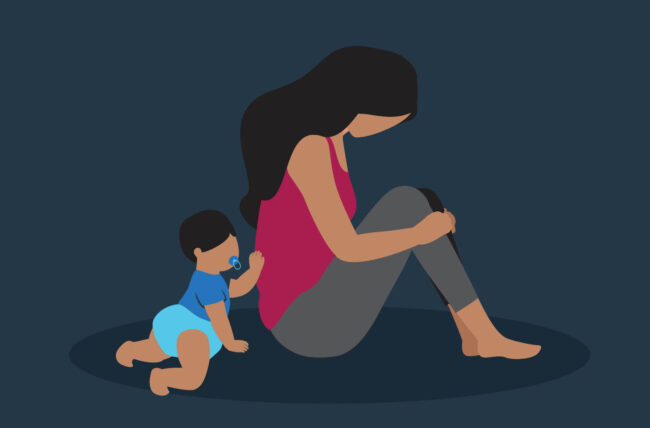You’ve had a bad workday. You’re probably going to reach out to a coworker or a close friend to vent. Venting is a normal part of working out our negative emotions. But does it get toxic?
As it turns out, yes. Then, venting can become trauma dumping – the act of sharing your feelings in a way which is harmful to others.
The psychologist Kia Rai Prewitt PhD, describes trauma dumping and how you can address it.
What is trauma dumping ?
Dr. Prewitt says that trauma dumping is the sharing of difficult feelings and thoughts. It is not a term that mental health professionals use, but those who engage in trauma dumping often share stressful or traumatic situations with others at inappropriate times.
Trauma dumping is a sign that someone is experiencing stress.
- Depression.
- Anxiety.
- Post-traumatic stress.
- Stressful work or home environments
Examples trauma dumping
How can you tell if someone is trauma-dumping another person? The most obvious red flag would be if they don’t give the victim (the one being trauma-dumped) a chance to express themselves or talk .
Prewitt explains that “the person receiving these thoughts and feelings often feels overwhelmed and powerless because they don’t know how to respond, or may not have been given the opportunity to respond.”
Dr. Prewitt cites the following examples of trauma dumping:
- At a casual meal with colleagues, a coworker shares specific details about a difficult divorce.
- A friend who shares details about a toxic relationship without letting the other person talk about their own day.
Venting vs. trauma dumping
Wait, isn’t it good to share our feelings? Absolutely. There are some important differences between venting and trauma-dumping.
Dr. Prewitt says that venting can be a great way to relieve stress by sharing your frustrations. “There is often mutual venting and validation by the other person.” Venting can help people to move past a situation or solve a problem.
You can tell the difference between yourself and other people when they vent and dump their trauma:
| Healthy Venting | Trauma dumping |
| Share your frustrations. | Oversharing is not appropriate at all times |
| You can vent to the other person. | Allowing the other person not to share your hardships. |
| Accepting responsibility for errors related to the issue at hand. | It is not taking responsibility for the mistakes that are related to the current problem. |
| Be open to solving the problem. | Inability to solve a problem. |
| Talking about only one subject at a given time. | Too much jumping from one topic to another. |
| Limiting the time of your venting. | Too many topics are discussed for too long. |
How can trauma dumping impact relationships?
Sometimes, trauma dumping can become more than uncomfortable. It could even push people away.
The danger of trauma dumping lies in the fact that it can often go beyond the boundaries of the listener. “It can also have a negative impact on their mental health, by increasing their stress and anxiety levels,” states Dr. Prewitt.
Dr. Prewitt says that trauma dumpers put their relationships in danger. It could be interpreted as manipulation if the listener thinks the relationship is only one-sided.
How do you know if your a trauma-dumper
You can improve your self-awareness if you think you are the dumper rather than the . Pay attention to the way you communicate with your co-workers and friends.
You can ask yourself some questions after you have shared a difficult experience with someone.
- They got a chance share their feelings.
- Is this person comfortable with sharing their traumas?
- Do I share these difficult feelings with the right people?
- Did you ask the person whether they were overwhelmed by my words?
- Is there a certain topic that I should discuss with a therapist?
How to stop trauma-dumping
You’ve realized that you might have been trauma-dumping. You’re on the right track to recovery if you’ve recognized it.
You don’t have to shut down completely. Find a professional counselor to provide you with a safe place to discuss any mental difficulties you are experiencing.
Prewitt recommends that you take an inventory to determine if you are feeling unfulfilled or depressed.
Take some time to consider your relationships and decide how you want to set boundaries. You may want to limit certain topics or people you can trust. You may want to check on the feelings of certain friends who you feel you have abused.
If you’ve noticed that family or friends have become distant from you due to trauma dumping, you can take responsibility by improving your mental well-being, apologizing and setting boundaries within your relationships.
How do you deal with trauma dumping when someone else is involved
What happens if you are impacted by the trauma-dumping of another person? This can be difficult to deal with, because you don’t wish to invalidate anyone’s feelings.
Dr. Prewitt advises that if you notice trauma dumping, it is best to speak directly to the person about your concerns.
It depends on your relationship with the person. You may have a friend who is willing to listen to your problems, but certain things that they say can be too upsetting. You may feel that the relationship is one-sided, and you are unable to express your feelings in the same manner as they can.
You might tell a loved-one who is traumatizing you the following:
- When you talk to me about your worries, I feel overwhelmed. I don’t know how to help. Have you considered talking to a professional regarding your stressors and concerns?
You can say:
- When we talk, I never get to tell you anything about my day.
- I feel often dismissed or unheard.
- It would be nice to have the opportunity to discuss my own stressors as well as yours.
There are many reasons why trauma dumping occurs. In some cases, trauma dumping can strain relationships. You can still learn healthy ways to vent if you have noticed yourself trauma-dumping. You can be honest with yourself and your partner if you are struggling with someone who dumps trauma.





















